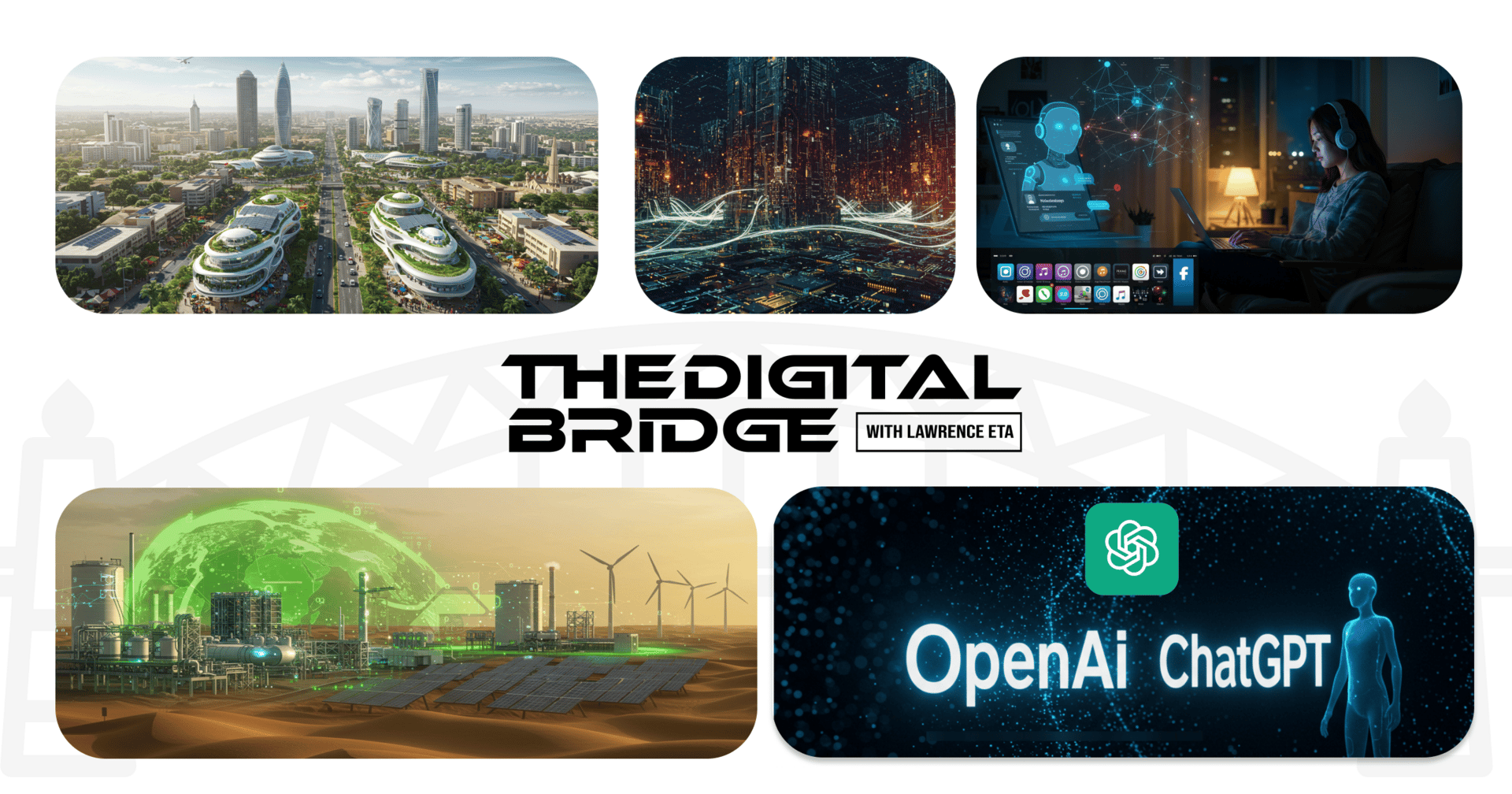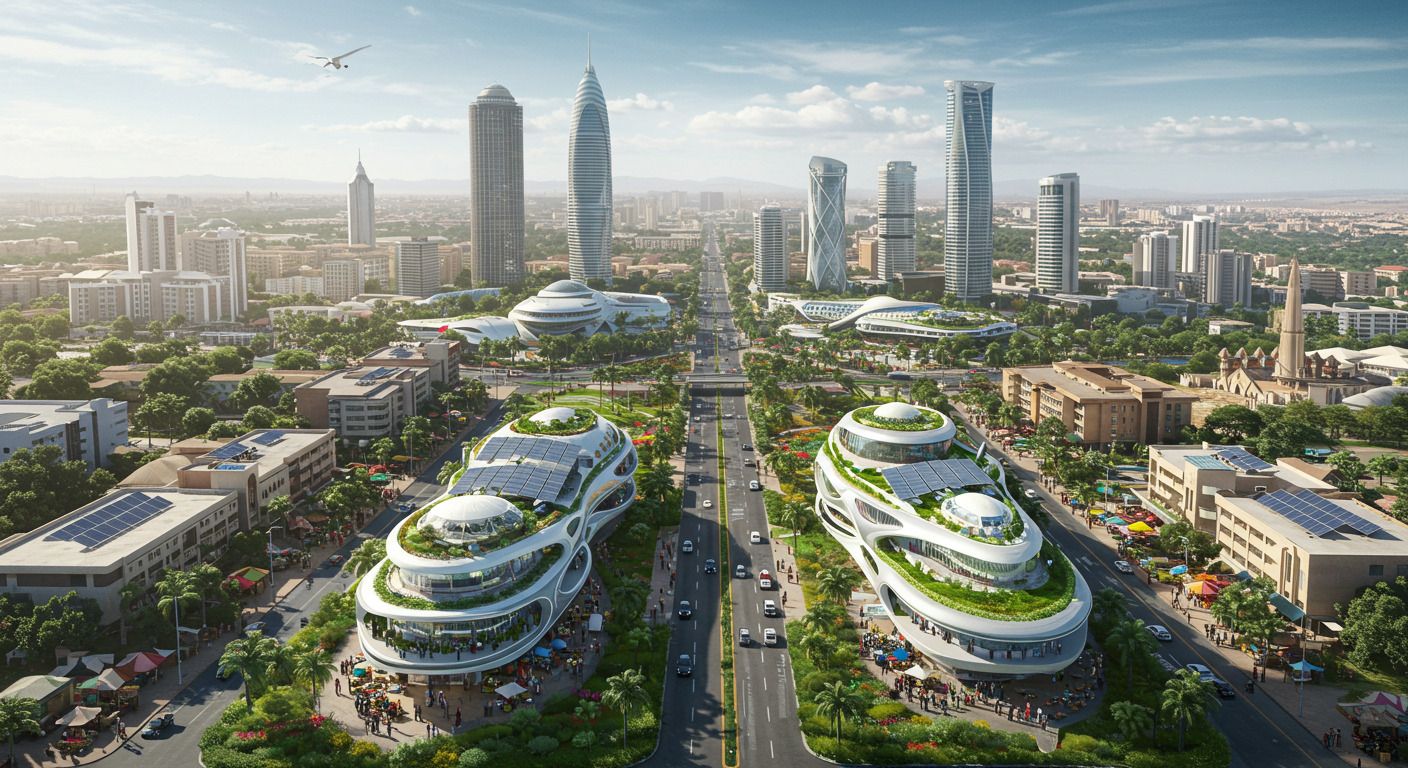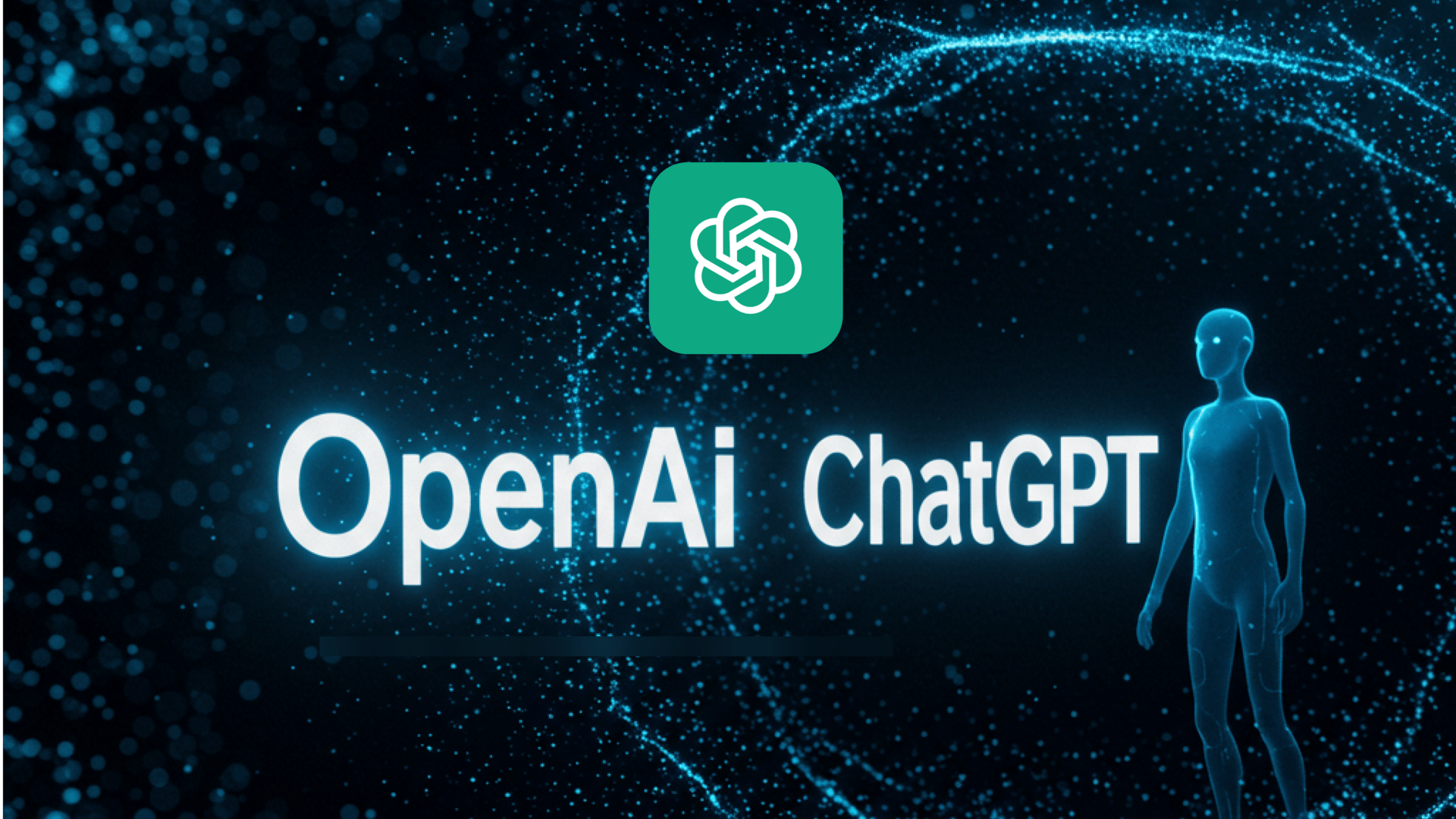- The Digital Bridge with Lawrence Eta
- Posts
- 10 Smart Cities Changing Africa’s Future
10 Smart Cities Changing Africa’s Future
Tech News, Global Digital Transformation, Thought Leadership and Current Trends


Welcome to this week’s edition of The Digital Bridge.
From Africa’s urban innovation corridors to the emerging AI governance challenges shaping global tech, this week’s headlines underscore one unifying truth: infrastructure is no longer neutral. It is strategic. It is political. And it is defining the pace and priorities, of transformation.
Africa’s smart city projects reveal a continent not just catching up, but actively designing people-first systems that blend technology with local context. Yet as the continent pushes for AI inclusion, deep compute and data gaps threaten to limit its voice in the next digital frontier. Meanwhile, global conversations on AI safety and privacy are intensifying, especially as tools like ChatGPT Agent redefine what autonomy looks like at scale. From Riyadh’s green hydrogen export deals to the risks of granting AI unfettered access to personal data, the decisions we make today will shape the resilience, sovereignty, and equity of tomorrow’s digital systems.
This week’s signals are not just technological, they are infrastructural, ethical, and geopolitical. Let’s get into it:
Smart City Progress: Inside Africa’s Top 10 Smart City Projects of 2025
Africa’s AI Infrastructure Gap: What’s at Stake in the Race for Compute Power
AI Assistants & Personal Data: The Case for Caution
Clean Energy & Strategic Infrastructure : Saudi Arabia Advances Green Hydrogen Trade with Europe
AI Infrastructure: OpenAI Unveils ChatGPT Agent: A Step Toward Autonomous Task Execution
Find out why 1M+ professionals read Superhuman AI daily.
In 2 years you will be working for AI
Or an AI will be working for you
Here's how you can future-proof yourself:
Join the Superhuman AI newsletter – read by 1M+ people at top companies
Master AI tools, tutorials, and news in just 3 minutes a day
Become 10X more productive using AI
Join 1,000,000+ pros at companies like Google, Meta, and Amazon that are using AI to get ahead.
SMART CITY PROGRESS:
Inside Africa’s Top 10 Smart City Projects of 2025

As African cities continue to grow rapidly, the urgency to build urban systems that are efficient, inclusive, and future-ready is becoming harder to ignore. With more than 60% of Africa’s population projected to live in urban areas by 2050, the pressure is not only about keeping pace but building with purpose.
In 2025, Africa’s smart city efforts are showing momentum across regions, some led by national governments, others through ambitious public-private ventures. Together, they are shaping what urban intelligence means when designed for African realities.
From Kenya’s Konza Technopolis to Ghana’s Appolonia City, here are ten cities reshaping how infrastructure, innovation, and inclusion intersect:
Konza Technopolis (Kenya): Kenya’s most advanced smart urban economy to date, Konza now hosts over 50 global tech firms and startups. Automated waste management, cloud-based public services, and centralized command centers are operational in 2025.
Vision City (Rwanda): A smart residential district designed for over 22,000 residents. Its infrastructure includes digital address systems, smart waste collection, and solar-powered public amenities.
Modderfontein New City (South Africa): After a slow start, Modderfontein is now rolling out blockchain land registries, intelligent transport systems, and AI research facilities, with 30,000 jobs forecasted by 2030.
Menlyn Maine (South Africa): A model for green urbanism, integrating ride-share mobility, smart water reuse, and AI-assisted building systems to cut private vehicle use by nearly 20%.
Hope City (Ghana): Recently revived, this vertical tech campus is drawing remote workers and tech entrepreneurs with 5G infrastructure and blockchain-based transactions.
Eko Atlantic (Nigeria): A coastal smart city built on reclaimed land, Eko Atlantic now includes app-managed utilities, autonomous power systems, and a secure digital identity platform.
Appolonia City (Ghana): West Africa’s example of integrated zoning, solar-powered infrastructure, and digitized property management, all designed to reduce service gaps and corruption.
Centenary City (Nigeria): Abuja’s flagship smart zone features biometric security, drone surveillance, and AI-enabled e-healthcare.
Tatu City (Kenya): Positioned as a release valve for Nairobi’s congestion, Tatu combines fiber infrastructure, smart security, and mixed-use zoning.
Kigali Innovation City (Rwanda): With institutions like CMU-Africa at its core, KIC is both a talent hub and innovation corridor. Its design blends intelligent transport, green energy, and academic partnerships to push Rwanda’s digital economy forward.
These cities are shaping their own definitions of intelligence, building systems rooted in local needs while prioritizing sustainability, economic stability, and responsive governance as foundational elements of urban progress. While some are still in early phases, many are beginning to shape how the continent will scale human-centered infrastructure in the decades to come.
AFRICA’S AI INFRASTRUCTURE GAP:
What’s at Stake in the Race for Compute Power

Africa is stepping into the AI era with both promise and pressure. From Nairobi to Lagos, innovators are building tools and training models rooted in local realities. But a basic hurdle persists: compute power.
Kenyan tech firm Qhala is developing large language models for African languages. Yet with fewer than 250 data centers on the continent, teams often rent capacity overseas. The U.S. alone has more than 5,000 centers. African engineers work around global traffic patterns to manage bandwidth, delay, and cost. This is not just a technical challenge; it's a structural barrier to meaningful participation.
AI IS ALREADY DELIVERING RESULTS IN CRITICAL SECTORS
AI is proving effective in high-impact areas. Agriculture is seeing early wins. Machine learning helps farmers prevent pest outbreaks, optimize irrigation, and reduce waste. AI-powered cold storage has been shown to reduce post-harvest losses by as much as 60%.
In healthcare, digital tools are starting to close critical gaps. With one doctor for every 5,000 people in sub-Saharan Africa, AI is supporting diagnostics, streamlining clinic workflows, and improving access to care. Imaging tools detect tuberculosis, telehealth platforms expand patient access, and automation frees doctors to spend more time with patients.
These are not pilot projects. They are operational shifts. But scaling them depends on localized infrastructure.
MOMENTUM IS BUILDING, BUT SCALE REMAINS A CHALLENGE
Investment is coming, but it is still uneven. Microsoft has pledged nearly $300 million to expand AI and cloud infrastructure in South Africa. Cassava Technologies is launching a major data center in Johannesburg and plans to build more across Egypt, Kenya, Morocco, and Nigeria. Even so, these projects are expected to meet only a fraction of local demand.
Meanwhile, international engagement is growing. In April, 2,000 delegates gathered for the Global AI Summit for Africa. A combined $60 billion commitment was made across the public, private, and philanthropic sectors to advance the continent’s AI capacity. Rwandan President Paul Kagame noted that Africa’s creative potential offers a comparative advantage in AI, if it is backed by focused action.
A CASE FOR AI SOVEREIGNTY
Africa’s long-term position in the global AI landscape will depend on more than adoption. It will require building, governing, and owning the systems that reflect African voices and values.
Hardy Pemhiwa of Cassava Technologies emphasized this clearly: “We absolutely have to focus on and ensure that we don’t get left behind.”
This is a moment to define Africa’s place in the AI economy, not as a consumer, but as a co-creator. That outcome will depend on infrastructure investment, policy coordination, and leadership that sees AI not as an external product, but as an enabler of local transformation.
AI ASSISTANTS & PERSONAL DATA:
The Case for Caution

Artificial intelligence is becoming part of everyday life. From mobile apps to browsers and search engines, users are increasingly interacting with tools that claim to improve productivity. But many of these tools require broad access to personal data, raising critical questions about privacy and security.
Consider Comet, an AI-powered browser developed by Perplexity. It enables users to automate tasks like summarizing emails or organizing schedules. To function, it requests extensive access to a user’s Google Account. This includes permission to manage emails, download contacts, read calendars, and even access entire company directories. While the company states that much of the data remains stored locally, the user still consents to wide-ranging data usage.
This level of access is becoming common. Many AI tools offer convenience through automation, but in doing so, they request permissions that include real-time access to voice data, photo libraries, and browsing history. Some apps require the ability to listen in on private conversations or read messages to provide transcription services or schedule assistance.
The concern lies not only in how much data is accessed, but in how that data is used. AI systems often rely on this information to improve performance. This means user data could be analyzed, retained, and in some cases, reviewed by human teams during troubleshooting or training.
Meredith Whittaker, president of Signal, has raised concerns about AI assistants functioning with high levels of autonomy. These systems may offer to complete tasks like booking travel or making purchases. To do so, they often require access to calendars, contacts, financial information, and login credentials. This shifts the responsibility for secure, informed decision-making away from the user and onto the system.
Once data is shared, control becomes limited. Access to email archives, messages, calendar entries, and location history can be granted in an instant. Retracting that permission does not erase the data that has already been processed. Users are left vulnerable if the AI makes mistakes or draws conclusions based on incomplete information.
This environment requires a clear-headed approach. Data access should be proportional to the task at hand. AI tools that ask for expansive permissions must be viewed critically, especially when they benefit from user data without providing transparency or meaningful safeguards.
The growing presence of AI in daily workflows should not come at the cost of privacy. Informed consent, limited access, and accountability in data handling are essential. As AI systems grow more sophisticated, the foundation of trust must be built not just on performance, but on respect for the digital boundaries of the people they aim to assist.
CLEAN ENERGY & STRATEGIC INFRASTRUCTURE:
Saudi Arabia Advances Green Hydrogen Trade with Europe

A new set of agreements positions the Kingdom as a clean energy bridge between East and West
Saudi Arabia has formalized a major push into global green energy markets with a series of agreements designed to establish a cross-continental export value chain for green hydrogen and renewable electricity. The initiative, led by ACWA Power under the supervision of the Ministry of Energy, was unveiled during a high-level workshop in Riyadh attended by officials from Saudi Arabia, Greece, France, Germany, and key energy firms.
The agreements focus on two primary goals:
Developing large-scale renewable energy projects within Saudi Arabia for export, and
Creating energy transmission corridors linking the Kingdom to Europe.
This move reinforces Saudi Arabia’s leadership in the India-Middle East-Europe Economic Corridor (IMEC), underscoring its strategic role in connecting global energy flows.
A multi-party memorandum of understanding was signed between ACWA Power and European firms including Edison (Italy), TotalEnergies Renewables (France), Zhero Europe (Netherlands), and EnBW (Germany). These parties will assess demand and technical feasibility for cross-border electricity trade.
ACWA Power also signed infrastructure-focused agreements with global transmission leaders CESI, Prysmian, GE Vernova, Siemens Energy, and Hitachi to support grid development. These partnerships are intended to ensure high-capacity, high-efficiency energy transfer across continents.
A key project within the strategy is the Yanbu Green Hydrogen Hub, which is set to begin operations in 2030. In partnership with EnBW, the facility will feature an integrated complex including renewable power generation, desalination, electrolysis, ammonia production, and a dedicated export terminal.
Saudi Arabia’s green hydrogen export chain reflects not only an energy transition, but also a broader shift in infrastructure as economic diplomacy. The Kingdom is building the physical systems to support long-term global partnerships in clean energy.
AI INFRASTRUCTURE & AGENTIC DESIGN:
OpenAI Unveils ChatGPT Agent: A Step Toward Autonomous Task Execution

A new general-purpose agent marks OpenAI’s boldest move yet into real-world task automation and tool-based reasoning
OpenAI has launched its most advanced agentic product to date, the ChatGPT Agent, now available for Pro, Plus, and Team subscribers. Unlike previous models that focused on information retrieval and conversation, this new release introduces a hands-on AI assistant capable of navigating apps, generating slide decks, executing code, and automating cross-platform workflows.
Built on capabilities from earlier tools like Operator and Deep Research, the agent can connect to external apps such as Gmail and GitHub via ChatGPT connectors. It also includes access to a command-line terminal and APIs for deeper integration, enabling users to instruct it in plain language to perform tasks such as competitive research, shopping logistics, or event planning.
Performance Benchmarks
According to OpenAI, the model behind ChatGPT Agent sets new records across multiple benchmarks:
It scored 41.6% on “Humanity’s Last Exam”, nearly doubling the previous model’s accuracy.
On FrontierMath, a high-difficulty benchmark, it achieved 27.4% accuracy with tools, outperforming OpenAI’s previous top score of 6.3%.
Safety and Oversight
OpenAI emphasized safety as a key consideration. The ChatGPT Agent was flagged as “high capability” in domains such as chemical and biological risks, according to the company’s Preparedness Framework. As a result, several precautions have been implemented:
A real-time monitoring system screens for biological misuse by running layered classifiers on user inputs and outputs.
The agent’s memory feature is disabled to reduce the risk of data exfiltration through prompt injection attacks.
This rollout marks a critical test for real-world applications of agent-based systems. While previous AI agents have struggled to consistently perform complex, open-ended tasks, OpenAI’s latest iteration aims to close that reliability gap. For enterprise leaders and policymakers, the product also surfaces key questions about data governance, safety protocols, and the infrastructure required to responsibly scale autonomous tools.
Final Thoughts:
From Africa to AI: What Holds, What Scales
The acceleration of AI, infrastructure, and digital systems is no longer theoretical, it’s material, political, and regional. Africa’s AI talent is advancing, but compute gaps risk bottlenecking progress. Meanwhile, the continent’s smart city projects are showing what contextual innovation really looks like: solutions rooted in governance, not just gadgets.
At the same time, new technologies, from OpenAI’s latest agent to green hydrogen trade routes, are challenging leaders to align digital ambition with public trust and economic resilience. Privacy, sovereignty, and infrastructure aren't side issues, they’re strategic.
The takeaway this week is simple: we are being asked to build systems that not only work, but hold. The questions ahead aren’t just about what’s possible,they’re about what’s durable, equitable, and worth scaling.
Don’t miss out on future updates, follow me on social media for the latest news, behind-the-scenes content, and more:
Twitter: Click here
Facebook: Click here
Instagram: Click here
LinkedIn: Click here
Enjoyed this newsletter? Share it with friends and help us spread the word!
Until next time, happy reading!
JOIN THE COMMUNITY
The Bridging Worlds Book
Discover Bridging Worlds, a thought-provoking book on technology, leadership, and public service. Explore Lawrence’s insights on how technology is reshaping the landscape and the core principles of effective leadership in the digital age.
Order your copy today and explore the future of leadership and technology.
SHARE YOUR THOUGHTS
We value your feedback!
Your thoughts and opinions help us improve our newsletter. Please take a moment to let us know what you think.
How would you rate this newsletter? |


Reply